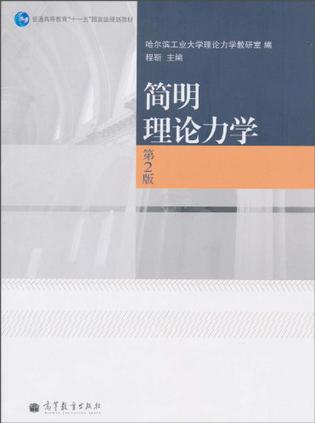
当前课程知识点:告诉你不知道的中国 > 附加课 课外活动 > 附加课 片段2 > 第四课 片段5
成语每句话都有一点历史
Cada palabra tiene un poco de historia
汉语中的成语
Los "chengyu" o la expresiónes idiomáticas son mejor
是日常汉语口语中常用的
conocidas en todo el mundo como "proverbio Chino"
四字短语
conocidas en todo el mundo como "proverbio Chino"
这些短语对外国人来说
Estas frases de cuatro palabras son utilizadas en el idioma chino
往往很难掌握
Normalmente los extranjeros tienen dificultades para dominar
因为首先
etas expresiones por diversas razones
汉语中常用成语
En primer lugar
汉语中常用成语
porque hay más de 1.000 proverbios comunes en chino
有1千多个
Los Chengyu son un aspecto importante
问题是成语
de la lengua china oral y escrita
在日常汉语口语和书面语中
y muchas personas la utilizan en
起着重要作用
sus conversaciones cotidianas
很多人在日常会话中都用它来
Por lo general reemplazan a muchos adjetivos en inglés
代替许多英语形容词
e incluso cuando se leen libros traducidos al chino
即使在阅读英译汉的书籍时
a menudo podrás descubrir que muchos de ellos adjetivos
你也会发现许多英语形容词
han sido reemplazados por un solo “chengyu”
都被成语所替代
para satisfacer mejor las necesidades de
以更符合中国人的表达要求
expresión de las personas de China
成语每句话都有一点历史
Chengyu A Bit of History in Every Sentence
汉语中的成语
A Chengyu or idiomatic expression
是日常汉语口语中常用的
is also commonly known worldwide as a “Chinese Proverb”
四字短语
These are 4 character phrases used in spoken Chinese
这些短语对外国人来说
These phrases are often difficult for foreigners
往往很难掌握
to master for several reasons
因为首先
First
汉语中常用成语
because there are more than 1,000 common idioms
有1千多个
in the Chinese language
问题是成语
The chengyu is an important aspect of spoken Chinese
在日常汉语口语和书面语中
as well as written Chinese
起着重要作用
and many people use them in day to day conversation
很多人在日常会话中都用它来
They usually take the place of many English adjectives
代替许多英语形容词
and even while reading books translated from English to Chinese
即使在阅读英译汉的书籍时
you’ll often find that many English adjectives
你也会发现许多英语形容词
have been replaced with a chengyu
都被成语所替代
in order to better meet the expression requirements
以更符合中国人的表达要求
of the Chinese people
举个例子
Les daremos un ejemplo
在英语中你可能会说
en inglés se puede decir que una mujer muy bonita es
一个极其美丽的女人是“drop-dead gorgeous”
"drop-dead gorgeous"es decir "peligrosamente hermosa"
甚至是“dangerously beautiful”
En chino se puede decir"
用中文你可以说
"她有沉鱼落雁的魅力"
“她有沉鱼落雁的魅力”
Si introduzcas 沉鱼落雁 en una aplicación de traducción
如果你把这个成语
obtendrás como resultado "peligrosamente hermosa"
放在一个翻译应用程序里
pero verdadera traducción de este "Chengyu" es
你会得到的结果是drop-dead gorgeous
"una belleza que logra que el pez se
但是这个成语的直译是
hunda y el ganso caiga"
一种让鱼沉下来 大雁掉下来的美
suena como una descripción muy extraña para la belleza
这听起来像是一个奇怪的比较
Sin embargo
但是当你了解
cuando conoces el contexto histórico
这句成语的深厚历史背景时
profundo de este proverbio
你会惊讶于成语的内涵
te sorprenderás de su contenido
举个例子
Here’s an example
在英语中你可能会说
In English you might say that an extremely beautiful woman
一个极其美丽的女人是“drop-dead gorgeous”
is “drop-dead gorgeous”
甚至是“dangerously beautiful”
or even “dangerously beautiful”
用中文你可以说
In Chinese you can say
“她有沉鱼落雁的魅力”
“她有沉鱼落雁的魅力”
如果你把这个成语
If you type 沉鱼落雁(chényúluòyàn)
放在一个翻译应用程序里
into a translation app
你会得到的结果是drop-dead gorgeous
the result you would get would be drop-dead gorgeous
但是这个成语的直译是
but the literal translation of this Chengyu is
一种让鱼沉下来 大雁掉下来的美
“A beauty that makes the fish sink and wild geese fall”
这听起来像是一个奇怪的比较
It might sound like a strange comparison for beauty
但是当你了解
but when you understand
这句成语的深厚历史背景时
the deep historical background of this idiom
你会惊讶于成语的内涵
you’d be surprised at the connotation
-序
-第一课 作业
-第二课 作业
-第三课 作业
-第四课 作业
-第五课 作业
-第六课 作业
-第七课 作业
-第八课 作业
-第九课 作业
-第十课 作业
-第十一课 作业
-第十二课 作业
-第十三课 作业
-第十四课 作业
-结束课 作业




